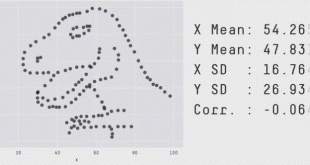There were supposed to be 10 weeks to the quarter but turns out UChicago doesn’t do a makeup day for Memorial Day! So some major surgery later, my last two lectures fit into one. This is just as well because I don’t know that much about democratization. Thanks to everyone for the comments and suggestions over the quarter. One of these days, maybe soon, I would like to write this up into a book. So critical comments are valuable. My syllabus is here and the slides are here: Week 9 –...
Read More »IPA’s weekly links
Guest post by Jeff Mosenkis of Innovations for Poverty Action. An attempt to measure and rank the most effective ways to reduce CO2 in the atmosphere ranked educating girls and family planning (globally) above green energy. Fewer unplanned births means fewer carbon footprints. (h/t Osman Siddiqi) On Monday, President Trump expanded the “global gag rule” to mean no funding can go to any NGO that also discusses abortion with beneficiaries anywhere in their operations. This expansion grows its...
Read More »Week 8 of my Order & Violence course: State building without war making
This week’s lecture draws heavily on one of the most important books on development I’ve ever read: Building State Capability by Harvard’s Matt Andrews, Lant Pritchett, and Michael Woodcock. It is open access and you can download it for free. If you hate trees but love the authors, buy a print copy. My syllabus is here and the slides are here: Week 8 – State building without war making Week 7 – Armed interventions Week 6 – Legacies of Imperialism and post-colonial politics Week 5 – The...
Read More »The conformity of economics papers?
Noah Smith has a fantastic essay on the problem with economics papers. Some excerpts: …in practice, I think what often happens in econ is more like the following: 1. Some papers make structural models, observe that these models can fit (or sort-of fit) a couple of stylized facts, and call it a day. Economists who like these theories (based on intuition, plausibility, or the fact that their dissertation adviser made the model) then use them for policy predictions forever after, without ever...
Read More »IPA’s weekly links
Guest post by Jeff Mosenkis of Innovations for Poverty Action. Chris Blattman had a nice interview with Stephen Ladek of the Terms of Reference podcast (iTunes). Chris talked about his approach to what RCTs are good for – less about that specific program but more about testing our assumptions behind the mechanism through which something might work. They also get into how he got started studying conflict and resolution (because someone offered to let him borrow some Land Rovers), but why he’s...
Read More »Weeks 1 to 7 of my Order & Violence course
The syllabus is here and the slides are here: Week 7 – Armed interventions Week 6 – Legacies of Imperialism and post-colonial politics Week 5 – The State and Society Week 4 – Institutions Week 3 – State development Week 2 – Conflict Week 1 – The demand for order
Read More »IPA’s weekly links
Guest post by Jeff Mosenkis of Innovations for Poverty Action. The datasets above all have the same means, SD, and correlations explain Justin Matejka & George Fitzmaurice of Autodesk in a modern update of Anscombe’s Quartet. But the lesson is the same – always plot your stuff. (h/t everybody) Jobs postings: Summer jobs with Busara Center, full-year with Michael Clemens, and many at the IPA/J-PAL (and several other orgs) jobs portal. Podcasts: Tyler Cowen talks with Cardiff Garcia on FT...
Read More »IPA’s weekly links
Guest post by Jeff Mosenkis of Innovations for Poverty Action. Chris Blattman & Stefan Dercon have an op-ed in the New York Times, reporting on their study with IPA and the Ethiopian Development Research Institute. They randomly offered poor workers in Ethiopia who were applying for factory jobs the jobs they wanted or an alternative entrepreneurship opportunity. Turns out the jobs were pretty bad – most quit and those that stayed weren’t any better off than those who never god a job...
Read More » Chris Blattman
Chris Blattman



